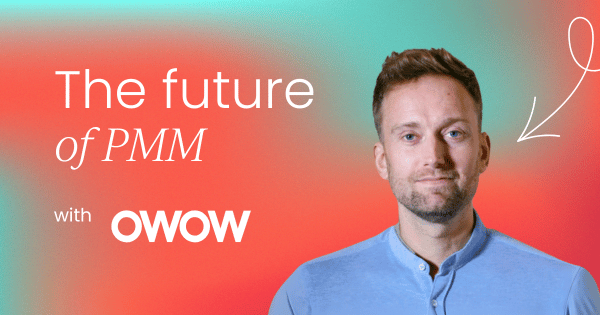The future can feel pretty overwhelming, can't it?
If you spend five minutes on LinkedIn, you're bound to hear that product marketing is dead, the funnel is dead, and everything's dead.
But what if we're looking at things the wrong way? What if the changes we're seeing aren't about AI replacing us, but about a new era of acceleration that demands a different approach?
I believe the future of our profession isn't about competing with AI but about mastering the uniquely human skills it can't replicate.
In this article, I'll share my predictions for the future of product marketing, exploring how intelligent automation will transform the way we approach positioning, personas, and sales enablement.
More importantly, I’ll explain why these changes aren’t something to fear. Instead, they’re an opportunity to reclaim our time and focus on the two most vital skills that will define our success: psychology and storytelling.
Let’s dive in.
The age of acceleration
I’ve spent my entire career in marketing, from working with brands like Adidas and Asics to my current role as the CMO of OWOW. Throughout this time, I’ve noticed a constant theme: everything is getting faster. I call this the age of acceleration, and it's making our jobs harder in three key ways.
First, competitors are multiplying at an unprecedented rate. It used to be that you’d research five competitors. Now, you’re looking at 50, and a few more pop up every couple of days.
Second, our target audiences are getting more diverse. Instead of focusing on just a couple of segments, many founders now say their customer is “everyone,” which is an incredibly difficult challenge to tackle.
Finally, our products are becoming more and more complex. We're no longer selling simple products like shoes or perfume; we’re building cloud architecture and security solutions that our grandparents wouldn't even understand.
The impact of AI on product marketing
These rising challenges make AI and the new technologies it enables all the more exciting. Instead of a threat, I see AI and intelligent automation as powerful allies that can free us from the small, repetitive tasks that have built up over the years. This allows us to focus on higher-level strategy, which is where we as product marketers provide the most value.
AI isn't a tool that replaces us; it's a torch that illuminates what we couldn't see before. However, with so many options and new technologies available, we face a new problem: option paralysis.
Just like being overwhelmed by a hundred different beers at a bar or spending 18 minutes scrolling on Netflix (the average time a user takes to pick a show!), the sheer number of AI solutions can make it hard to know where to start.
To overcome this, we have to experiment and learn what works for us. I've identified three key areas where I predict intelligent automation will change product marketing in the next five years:
- Positioning
- Personas
- Enablement
Let’s take a look.
The future of positioning: From static to live
Positioning has always been a core function of product marketing. We analyze competitors, identify our unique value, and find the customers who care most about that value.
We used to do this quarterly or annually. But in an age where new AI competitors can appear overnight and product features can change in a day, a static positioning strategy is no longer enough. So, my first prediction is that positioning will move from being a static exercise to a live, continuous process.
We're already seeing this with automated dashboards that track competitors, but imagine a “positioning agent” that goes out every day to scan competitor websites, track new product launches, and monitor industry news. It would then match all of this information against our own positioning and let us know when our messaging, battlecards, or even product roadmap needs to be updated.
This is a huge opportunity to save time on research and focus on what truly matters. The best product marketers won’t be the ones who just collect the data; they’ll be the ones who can read the data, understand the insights, and effectively position the company. They'll be the sense-makers who know where to point the torch.
The future of personas: From theoretical to data-driven
My second prediction is that we will move away from theoretical personas to data-driven ones.


















 Follow us on LinkedIn
Follow us on LinkedIn




.svg)